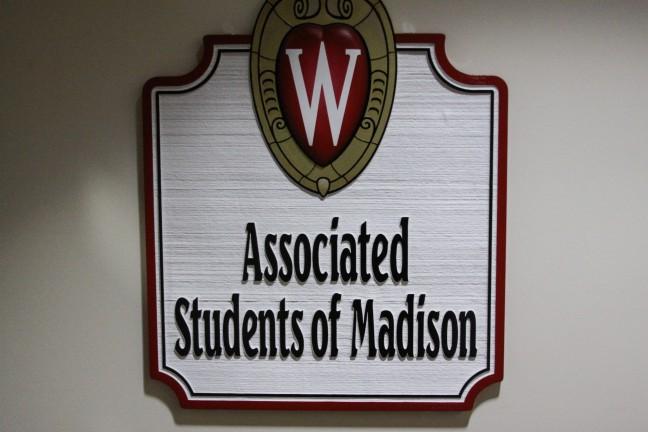In this week’s Point-Counterpoint, For College Republicans Chair Alex Walker made a strong case that allocable segregated fees should be optional, especially if you come from a classically conservative viewpoint. However, he failed to see the whole picture.
After writing some fluff about being a die-hard “Sconnie,” Walker propagates the idea that conservative groups are under assault by the ultra-progressive, ultra-evil ASM that is breaking its own Constitution. This would seem true, unless one has experience within ASM.
Point Counterpoint: ASM is far too partisan to be trusted with allocable segregated fees
Distribution of allocable segregated fees are required to be distributed in a viewpoint neutral manner.
This is not to say ASM is not without its problems. I have experience with ASM and, although full of well-meaning people, it very much feels like a “club” that is difficult for anyone not involved in ASM to access. But Walker is unwittingly fanning the flames of resentment and division on this campus that he so decries with examples and platitudes that are blatantly false.
When it comes to his breakdown of distribution of segregated fees, Walker says that ASM “plays favorites,” pointing out that 14 student organizations suck up the vast majority of the money ($1.4 million), while leaving the rest of the student organizations out in the cold. What he conveniently omits is that these funds, called General Student Services Funds, are doled out annually, while RSO grants are given for one-time events and initiatives.
In addition, the organizations funded by GSSFs are ones that have a great benefit for the student body and have free membership. Among these organizations are VETS, Badger Catholic, and the Greater University Tutoring Service. Either way, Walker is not looking at the whole picture, but is interpreting things at surface-level.
In addition to propagating ignorant ideas about ASM, Walker’s arguments in favor of the opt-out are incorrect. One of Walker’s arguments in favor of making allocable segregated fees optional is that it will give students more freedom when it comes to deciding what to pay for college.
Let us assume that all students want to minimize the amount that they pay for college in any way possible (scholarships, opt-outs, taking only 4 years, etc.). Making allocable segregated fees optional would create a new, easy, convenient way for students to minimize the cost of their college, even if it is only $89 less. Making segregated fees optional would create a tragedy of the commons where there was none before — all students get the benefit of robust campus life from paying into the pot, but every student has an incentive to not pay into that pot.
Not only would this proposal dry up the funds that students and their organizations depend on while living on campus, such as the Rape Crisis Center, WSUM Student Radio, and the ASM Bus Pass, the opt-out proposal would cause conservative organizations to face the discrimination by ASM that they so fear. As I stated before, ASM is required to distribute funds in a viewpoint neutral manner.
In 1996, three law students sued the Board of Regents arguing that it was unconstitutional to be mandated to pay allocable segregated fees for organizations with which they did not agree. After a series of appeals, the United States Supreme Court issued an opinion in 2000, stating that mandatory fees are constitutional as long as they are distributed in a viewpoint-neutral manner.
ASM indefinitely postpones divestment resolution after hours of heated debate
Making allocable segregated fees optional would remove the requirement that they be distributed in a viewpoint neutral manner, which could lead to conservative organizations or events having their funds withheld by the more leftist members of ASM, creating the political bogeyman that Walker alleges ASM to be and taking us back to the political tensions of the 1990’s on campus.
Walker’s article shows a great degree of ignorance with how ASM functions and, in my opinion, shows selection bias to propagate the meme that ASM’s boot is on the throat of conservatives when the reality is far from his dystopian vision. Representative Joel Kitchens of Wisconsin’s 1st Legislative District, a Republican, fairly stated that the 2017-19 budget was very generous to the UW System, but agreed with the people of ASM that making allocable segregated fees optional is a bad idea.
Walker’s point-counterpoint argument showed a lack of knowledge about how ASM operates and focuses on, more than anything, resentment for the seemingly “ultra-liberal” ASM.
William Doty ([email protected]) is a junior, majoring in political science and economics.














